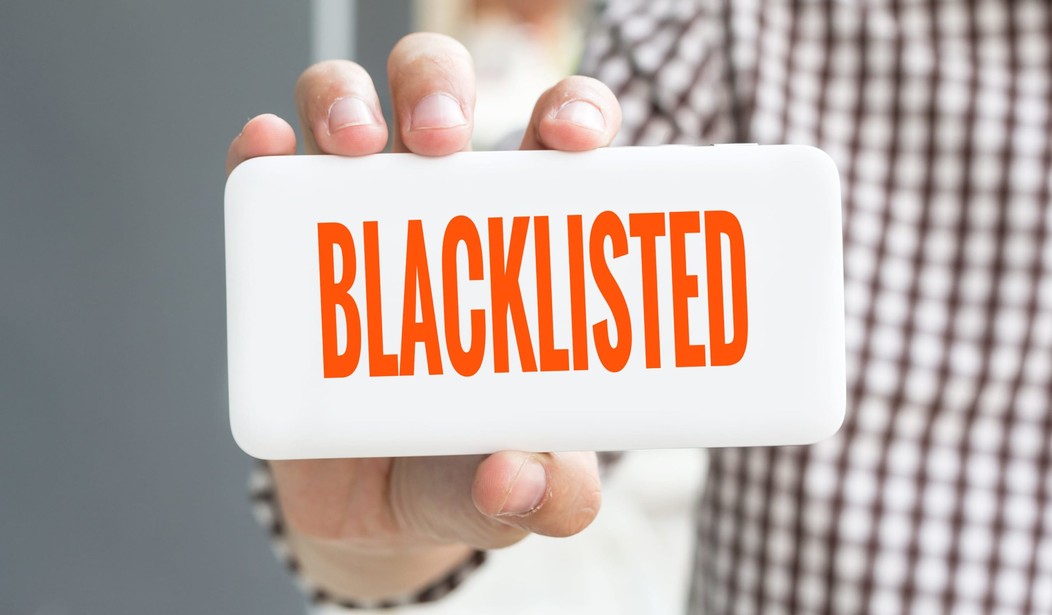A few months ago, brands started coming under fire on Twitter for having ads appear on the conservative news site Breitbart. In response, many did pull ads, including advertisers like Allstate and Modcloth. Brands have started taking blacklisting to a new level, including many more conservative sites which should not be lumped in with Breitbart.
“We have had some clients asking if we can ensure their ads do not run on Breitbart or other specific websites, and we have proactively reached out to others to let them know our options when it comes to blocking specific properties and allowing them to review our blacklist,” Marcus Pratt, vice president of insights and technology at Mediasmith, told Digiday. The site also linked to a blacklist reportedly from Mediasmith, which included a broad swath of reputable websites.
Breitbart has come under fire for publishing salacious news and taking a firmly pro-Trump slant, throughout the 2016 presidential election and beyond. The site is perhaps most infamous due to its former CEO Steve Bannon, who joined the Trump campaign in August. Even those in the conservative movement have attacked the website as “Trump-bart” or a Trump version of Pravda, the notorious Russian newspaper which always followed the government line during the Soviet Union.
Indeed, the controversial Milo Yiannopoulos got his start at Breitbart.
It might make sense for advertisers to blacklist Breitbart, given its pro-Trump slant and possible conflicts of interest. Large companies like Allstate — and the AARP, Air Canada, CVS, Lufthansa, the Red Cross, and REI, all of whom have reportedly blocked Breitbart from their ad buys — might want to keep their brand off of Breitbart.
But other sites which do not have Breitbart’s unique ties to President Trump are also on the list provided by Mediasmith, and that is indeed concerning. Mediasmith is an advertising agency based in California, and it counts among its clients GoToMeeting, Stanford Children’s Health, and Silicon Valley Bank, among others. This list may or may not be representative of the online advertising business’s trends as a whole.
Naturally, the list includes sites like ConspiracyPlanet.com, ConspiracyWire.com, and Illuminati-News.com. These make good sense. But others are less excusable or easily dismissed as “fake news.”
There is another category of website on the list which also might be excused as politically understandable: websites which promote political causes. Sites such as Heartland.org (The Heartland Institute), Heritage.org (The Heritage Foundation), DailySignal.com (The Heritage Foundation’s news outlet), FreedomWorks.org (FreedomWorks), MRC.org (the Media Research Center) and CitizensUnited.org (Citizens United) are political advocacy sites, and it makes sense that big brands might not want to be associated with them.
But besides a few advocacy/news sites like Advocate.org (the gay site The Advocate) and DailyKos.com (the notorious liberal Daily Kos), most of the big liberal non-profits do not show up on this list. Notable exceptions include Progressive.org, GenProgress.org (Generation Progress), MoveOn.org, MediaMatters.org, and PlannedParenthood.org. That’s right — The Heritage Foundation is on the blacklist, but Planned Parenthood is not. Go figure.
Even worse, there are numerous mainstream conservative (and primarily just Christian) websites also on the Mediasmith blacklist. This is the real injustice. And no, PJ Media isn’t just reporting on this because PJ Media was on the list. Here are just a few of the conservative outlets which were blacklisted, and why they shouldn’t have been.
1. The Drudge Report.
Yes, the Drudge Report (drudgereport.com) has a barebones feel, and it is a pure aggregating site with a strong conservative slant. But it drives an insane amount of traffic, and Internet journalists compete to reach its top spot. This website should be taken off the blacklist because it provides key exposure to brands, and it links to genuine news.
2. IJR (formerly Independent Journal Review).
One of the blacklisted websites was ijr.com. IJR is a conservative website which does not just defend everything President Trump does. It does not hide its conservative slant, but does not deserve to be blacklisted. If brands do not blacklist BuzzFeed, which does similar journalism on the Left, they should not target IJR.
3. National Review/National Review Online.
National Review, a magazine founded by William F. Buckley, Jr. which notoriously came out with a scathing attack on Donald Trump during the 2016 Republican primary, also showed up on the list as nationalreview.com. Again, National Review does not hide its conservative slant, but it’s also not a Trump lapdog. It does not belong on the list.
4. The New Hampshire Union Leader.
The New Hampshire Union Leader (unionleader.com) is a newspaper known across the country, fervently followed in the lead-up to presidential primaries every four years. Once again, it has a conservative slant, but it’s a well-known, well-established newspaper in its own right. Brands should be just fine appearing on its website.
5. The Christian Post.
The Christian Post (christianpost.com) may not be a household name, but it drives a huge amount of Internet traffic. It focuses on Christian faith and how that faith interacts with the world — going well beyond conservative politics. Its political section may skew conservative, but the site is not primarily about politics, and brands should be happy to get the kind of exposure it provides.
6. Britain’s Daily Express.
The Daily Express (express.co.uk) also showed up on the blacklist. Yes, the Express is a tabloid, but it seems likely the site ended up on this blacklist only because it skews conservative — the paper endorsed the pro-Brexit UK Independence Party in 2015.
7. The Washington Free Beacon.
The Washington Free Beacon (freebeacon.com) is a relatively new site focused on investigative journalism, mostly from a conservative perspective. Similar sites from a liberal perspective, like ThinkProgress.org, did not appear on the list.
8. Breakpoint.
Like The Christian Post, Breakpoint (breakpoint.org) is a Christian site focused primarily on faith and culture. It skews politically conservative, but was established by the Chuck Colson Center, an organization founded to minister to those in prison.
9. The Weekly Standard.
The Weekly Standard (weeklystandard.com) has always had a conservative bent — it was founded in 1995 to report on the Clinton presidency from a conservative perspective. The paper has never been profitable, but it is a household name in conservative circles, and has been described as “the Bible of neo-conservatism.” While it is controversial in political circles, it does not deserve a place on the blacklist.
10. PJ Media.
Naturally, PJ Media found a place on the list. Our website is unabashedly conservative, but it is a big tent — offering straight news (News & Politics), pro-Trump and anti-Trump perspectives, and sections for Lifestyle, Faith, and Parenting. The Huffington Post (huffingtonpost.com), the liberal site on which PJ Media is loosely based, did not make the list.
It is important to note that a few conservative websites, such as the Daily Caller (dailycaller.com), and Campus Reform (campusreform.org), did not make the blacklist, despite their equally conservative bent. The New Yorker‘s humor page was blacklisted, but that fits with satire sites like The Onion.
Again, it is unclear whether this Mediasmith list provided to Digiday is representative of the Internet advertising business, but if it is, this bias against conservative advocacy and conservative news is unacceptable.








Join the conversation as a VIP Member